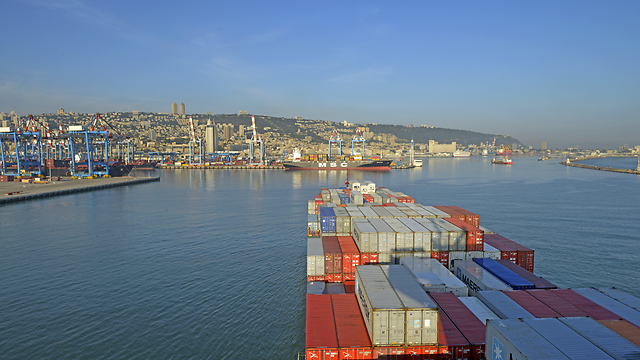
Israel, India, UAE forge new trade route linking regions
HAIFA : Israel, India, and the UAE can put a modern spin on ancient trade by linking ports in a caravan of goods fit for the 21st century
At the end of 2021, Dubai’s DP World logistics firm stepped back from a bid to operate the newly privatized port in Israel’s Mediterranean coastal city of Haifa. The move actually helped pave the way for a more significant development in the economies of Israel, the United Arab Emirates, and India – the creation of a new trade route and commercial corridor linking southeast Asia, the Middle East, and Europe.
India’s Adani Group stepped in, and together with Israel’s Gadot Group, paid $1.18 billion to acquire the operating lease of the original Haifa port facility until 2054. That investment reflected the growing commercial ties between Israel and India, which reached $6.3 billion in trade in 2021.
And something more as well: Adani’s deal was announced the same day that the leaders of Israel, the UAE, and India held a virtual summit in Jerusalem with the visiting U.S. President Joe Biden to inaugurate the I2U2 Group – a new global bloc comprised of those four nations aimed at promoting “joint investments and new initiatives in water, energy, transportation, space, health, and food security.’’
As the I2U2 statement indicated, there are many facets of economic integration and growth contained within the Israel-India-UAE triangle. For example, all three are global leaders within the tech industry, but wherein Israel and the UAE are dynamic hubs of innovation and research and development, India’s population offers those relatively small nations a vast pool of potential manpower and the opportunity to develop back-office and manufacturing centers there.
An International Federation of Indo-Israel Chambers of Commerce was launched last year, headquartered in Dubai, with estimates that trilateral trade between the three countries could reach $100 billion by 2030.
The Abraham Accords – which saw Israel normalize ties with a handful of Arab states – opened up the possibility of extending that India-UAE trade route further west, right to the shores of the Mediterranean and the doorstep of European markets.
One of the projects under discussion between the Israeli and Emirati governments is a train line extending from the UAE to Israel. Such a project could be done by revitalizing and extending historic track routes already existing in Jordan and Saudi Arabia. The upside would be major, significantly cutting the shipping times of Asian freight across the Middle East to Europe that currently has to rely on passage through Egypt’s Suez Canal.
From this perspective, India’s investment in Haifa port makes perfect sense as a forward-looking move in its trade policy. In recent years, China has used its Belt-and-Road Initiative, funding global infrastructure projects to create a modern Silk Road servicing its own economic interests.
Now, the constellation of Israel, India, and the UAE have the opportunity to put a modern spin on the southern half of that ancient trade route, linking its ports together in a caravan of goods fit for the 21st century.

